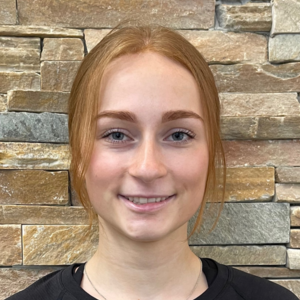Laura Schatz
PT Assistant

Laura is an undergraduate Kinesiology co-op student at the University of Victoria, looking to pursue a career in Kinesiology or Physiotherapy. Her favourite subjects during her studies have been functional anatomy and athletic injury care. She is very excited to learn more about functional neurorehabilitation during her summer placement at Neuromotion!
Laura has experience with clinic administrative work and is also a certified personal trainer. She is inspired to help others improve their well-being and achieve their goals!
Laura lives in North Vancouver and has a strong passion for outdoor activities. In her spare time, she loves to go hiking, camping, mountain biking, and weightlifting.
